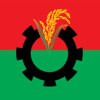Missiles, politics and cascading effects
To say that the situation revolving around the IS has been convoluted and muddy until very recently would have been an understatement. Nevertheless, lately we see through the clouds a flicker of hope for a reasonably well-judged response to the IS challenge.
This should begin with a reassessment of IS' strengths and weaknesses. Let's not forget, it had carried out 15 terror attacks in 2014 worldwide, quite sparsely distributed by present standards to be sure. A territorially insulated and encircled ISIS in 2015 has made 150 attacks, a ten-fold increase in less than a year.
Shrunken in geographical space, it is making its presence felt through a string of mindless extraterritorial attacks at the time and place of its choice. That is why, the red alerts all over, even when the IS should have been on the run.
The IS' selling point is: life after death is more important than life herein, a spiritual message that is exploited for wrong ends. It is catchy enough for the bewildered and culturally self-alienated youth to take to and even die for. Mentors have been cocooned in safety and comfort while the foot soldiers risk their lives.
The modus operandi of the IS is equally innovative, constantly responsive to newer operational challenges they get to face. Self-motivated sleeper cells take on dangerous missions independently of the centre. They do not wait for command from the headquarters to act.
Its strength lies in being unstructured, loosely knit but at the same time catalyzed by a single-minded pursuit of deadly goals.
Arrayed against them are formidable forces now. In a free vote without any party whip, the British parliament with an overwhelming majority including 67 Labour MPs, voted for bombardment in Syria. George Osborn, Chancellor of Exchequer, has allocated £1.9 billion in extra funds to tackle the militant threats. He apparently added with a sigh that offence is less expensive than defense.
Almost simultaneously, the US has decided to send a Specialized Expeditionary Targeting Force to Syria and Iraq in its fight against Islamic militants. Germany and France are already in it.
Differences still dog collective steps. Iraqi Prime Minister Haider al Abadi bluntly said, Iraq does not need foreign ground troops to defeat the Islamic State group. After all, it is a 100 personnel-strong Expeditionary Force that still comes under ire of the Iraqi PM. He wants to distance himself from the deployment as a political expedient contingent upon the US ground troops having fought a nearly nine year war in Iraq.
Russian intervention is a powerful element in the political equations. Pro-Assad in focus it has helped subdue the IS.
Moscow's verbal duels against Ankara are getting intense by the day. Turkish President Erdogan and his family have been accused of involvement in illegal oil deals with Islamic State jihadis ratcheting up the heat over Ankara's alleged downing of a Russian warplane.
Montenegro receiving Nato's invitation to join in, Russia was quick to react to the organisation's expansion eastward, this adding to the bad blood between Moscow and West over a slew of issues including Ukraine.
The prospect of real headway against IS pivots around one single point. The 70,000 moderate people comprising Shi'a and Sunni who can make difference from within are a ragtag force without a chain of command as they fight against Assad.
Kurdish and pro-Assad army have a chain of command but anti-Assad and anti-IS forces are lacking in it.
Where the Muslim world should have been a part of the solution of IS crisis it is being the perpetuator of the problem.
That said, we endorse the efforts at political solution through Vienna Conference which has already had two meetings. The worst case scenario is predicted to be carving up of Syria into parcels held by different stakeholders.
At any rate, even a homogenous country like Bangladesh cannot afford to bury its head in the sand in the face of terrorism that is becoming an increasingly borderless phenomenon. Just as an epidemic knows no frontier so also terrorism, a new epidemic of hatreds.
The bottom-line is that if there is a generic confusion at the top in terms of decision-making to fight fundamentalism of all hues and stripes this will have a cascading effect on to the bottom.
We need to be watchful of the anti-terrorism trends so that we can pick right countries to garner expertise and technical support from. Importantly, the agenda for freezing sources of funds for terror networks must receive topmost priority at the moment.
The writer is Associate Editor of The Daily Star.

 For all latest news, follow The Daily Star's Google News channel.
For all latest news, follow The Daily Star's Google News channel. 








Comments